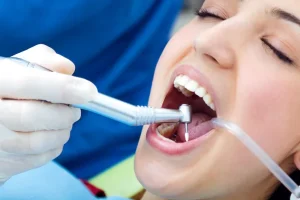Oral health is often taken for granted although it is one of the important aspects of a person’s health. The mouth is a window to a person’s health as it can show signs of nutritional deficiencies, general infection, or systemic diseases. Generally, diseases may first become apparent because of mouth lesions or other oral health problems. Young or old, oral health is important. However, cavities remain the most prevalent chronic disease since millions of people fail to see a dentist each year as regular dental examinations and good oral hygiene can prevent most dental disease. More likely, people believe that the need to see a dentist is only if there is pain or something is wrong, disregarding the fact that regular dental visits can contribute to a lifetime of good oral health. Your oral health is more important than you might realize. Below are common oral health problems you should take into your consideration.

Table of Contents
Gum disease
It often starts as gingivitis, which is the only stage that is reversible. If not treated, gingivitis may lead to a more serious, destructive form of gum/periodontal disease called periodontitis. Treatment methods depend upon the type of disease and how far the condition has progressed.
Sensitivity
If hot or cold foods make you wince, you may have a common oral health problem—sensitive teeth. Sensitivity in your teeth can happen for several reasons, including tooth decay (cavities), fractured teeth, worn fillings, gum disease, worn tooth enamel, or exposed tooth root.
Dry mouth
Everyone’s mouth can be dry sometimes, but if you feel like your mouth is always dry, it may be time to seek treatment. A dentist will check your teeth for signs of decay that can result from a decreased salivary flow. A physician will test for any underlying disease or conditions that may be causing your dry mouth.
Oropharyngeal Cancer
This can affect any area of the oropharyngeal cavity including the lips, gum tissue, cheek lining, tongue, jaw the hard or soft palate and throat. It often starts as a tiny, unnoticed white or red spot or sore or swelling anywhere in the mouth or throat.
Also, there are diseases that can be the cause of the above-mentioned oral health problems – Endocarditis, Cardiovascular disease, Diabetes, and Sjogren’s syndrome. Knowing these potential links, be sure to tell your dentist if you’re taking any medications or have had any changes in your overall health — especially if you’ve had any recent illnesses or you have a chronic condition, such as diabetes.
You can practice good oral hygiene by always brushing your teeth twice a day with a fluoride toothpaste, cleaning between your teeth once a day with floss or other dental cleaners, replacing your toothbrush every three or four months, by eating a balanced diet and limiting between-meal snacks, and most of all, having regular trips to the dental clinics; bear in mind to not forget to schedule regular dental check-ups to keep your oral state healthy. It is a must to take oral health one of your primary concerns.



